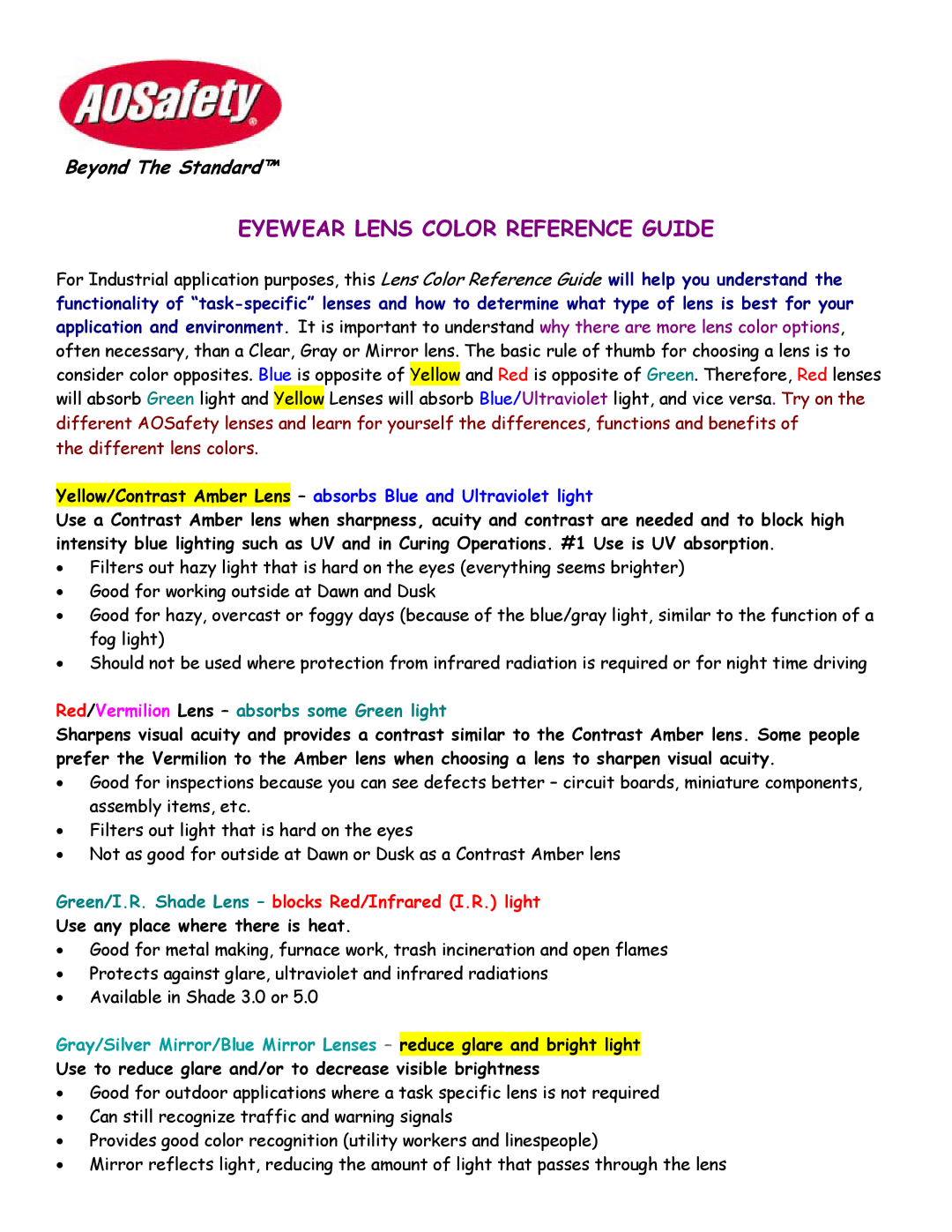
Beyond The Standard™
EYEWEAR LENS COLOR REFERENCE GUIDE
For Industrial application purposes, this Lens Color Reference Guide will help you understand the functionality of
the different lens colors.
Yellow/Contrast Amber Lens – absorbs Blue and Ultraviolet light
Use a Contrast Amber lens when sharpness, acuity and contrast are needed and to block high intensity blue lighting such as UV and in Curing Operations. #1 Use is UV absorption.
•Filters out hazy light that is hard on the eyes (everything seems brighter)
•Good for working outside at Dawn and Dusk
•Good for hazy, overcast or foggy days (because of the blue/gray light, similar to the function of a fog light)
•Should not be used where protection from infrared radiation is required or for night time driving
Red/Vermilion Lens – absorbs some Green light
Sharpens visual acuity and provides a contrast similar to the Contrast Amber lens. Some people prefer the Vermilion to the Amber lens when choosing a lens to sharpen visual acuity.
•Good for inspections because you can see defects better – circuit boards, miniature components, assembly items, etc.
•Filters out light that is hard on the eyes
•Not as good for outside at Dawn or Dusk as a Contrast Amber lens
Green/I.R. Shade Lens – blocks Red/Infrared (I.R.) light
Use any place where there is heat.
•Good for metal making, furnace work, trash incineration and open flames
•Protects against glare, ultraviolet and infrared radiations
•Available in Shade 3.0 or 5.0
Gray/Silver Mirror/Blue Mirror Lenses – reduce glare and bright light
Use to reduce glare and/or to decrease visible brightness
•Good for outdoor applications where a task specific lens is not required
•Can still recognize traffic and warning signals
•Provides good color recognition (utility workers and linespeople)
•Mirror reflects light, reducing the amount of light that passes through the lens
